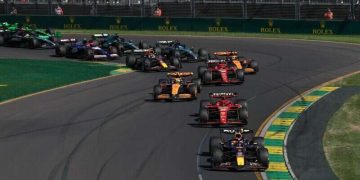PRO-PALESTINE protests will face a new crackdown after Jewish communities were left living in fear in the wake of the Manchester synagogue massacre.
The move comes after two people were murdered on Yom Kippur – and nearly 500 protesters were arrested at London rallies backing banned terror group Palestine Action.

Police made nearly 500 arrests after pro-Palestine marches went ahead yesterday in London and Manchester[/caption]

Home Secretary Shabana Mahmood[/caption]
Under the Home Office shake-up, police will be able to block or move demonstrations by taking into account the “cumulative impact” of weeks of disruption and unrest.
Home Secretary Shabana Mahmood said: “The right to protest is a fundamental freedom in our country.
“However, this freedom must be balanced with the freedom of their neighbours to live their lives without fear.
“Large, repeated protests can leave sections of our country, particularly religious communities, feeling unsafe, intimidated and scared to leave their homes.
“This has been particularly evident in relation to the considerable fear within the Jewish community, which has been expressed to me on many occasions in these recent difficult days.
“These changes mark an important step in ensuring we protect the right to protest while ensuring all feel safe in this country.”
The crackdown follows outrage that campaign group Defend Our Juries went ahead with a 1,500-strong rally in Trafalgar Square just two days after the synagogue killings – despite police pleas to cancel.
Scotland Yard warned the protest risked “creating further tensions” and dragged 2,500 officers away from guarding Jewish neighbourhoods still reeling from the attack.
Senior officers will now be able to factor in the strain of previous marches when imposing conditions on future protests.
Anyone who defies the orders faces arrest and prosecution.
Ms Mahmood will also order a full review of protest laws, including whether police should be able to ban protests outright during terror threats or national security crises.
The powers will come through changes to Sections 12 and 14 of the Public Order Act 1986, explicitly allowing police to consider the “cumulative impact” of repeated protests when setting conditions on marches and assemblies.
After the Manchester terror attack, Communities Secretary Steve Reed has written to councils urging them to “protect Jewish communities and limit protest activity as much as possible.”
Police across England and Wales are now working with the Community Security Trust to protect 538 synagogues and Jewish sites nationwide.
Pro-Palestine protesters took to the streets just hours after Adrian Daulby, 53, and Melvin Cravitz, 66, were murdered by Jihad Al-Shamie.
The pair were brutally killed by the 35-year-old jihadist during Yom Kippur – the holiest day in the Jewish calendar.
Speaking at yesterday’s Manchester synagogue vigil, locals turned on ministers, yelling “you have blood on your hands”.
A spokesperson from Defend Our Juries said on Saturday: “Ahead of today’s actions, Defend Our Juries urged the Met police to prioritise protecting communities over arresting peaceful protesters for holding signs.
“The police asked for us to postpone the silent vigil today due to their tight resources, yet many other forces including in Edinburgh, Derry, Totnes and Kendal have used their discretion to not arrest people for peacefully holding signs.
“We hope the police do indeed choose to prioritise protecting the public from real terrorism, and not waste resources on enforcing the absurd and ridiculous ban on Palestine Action.
“Around 1,000 people, including the elderly, vicars, children of holocaust survivors, peace activists and more, are each peacefully and silently holding a sign which says ‘I oppose genocide. I support Palestine Action’.
“If the police make the political decision to arrest them, they will face charges under the Terrorism Act, a risk they’re willing to take in order to protect our democracy and oppose the escalating Gaza genocide.
“We hope the police make the sensible and correct decision to not arrest peaceful protesters and instead dedicate their resources to protecting the community.”




























